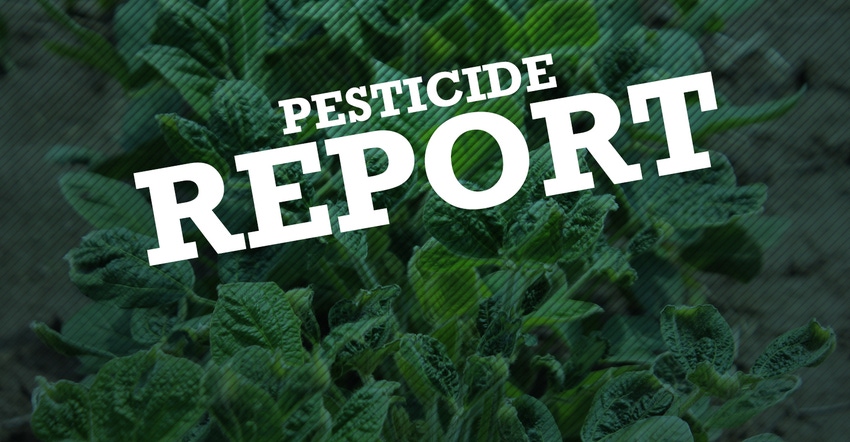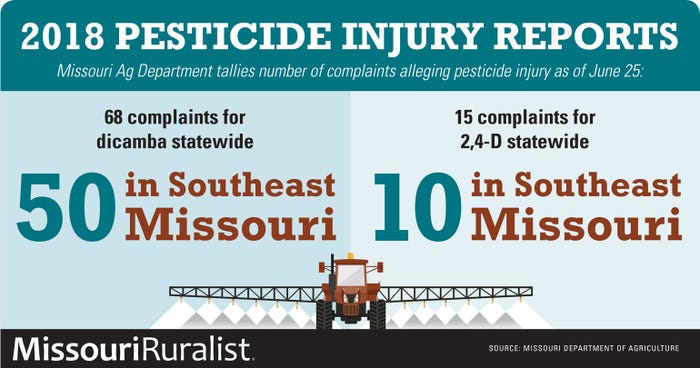
Reports of damage from dicamba started coming into the Missouri Department of Agriculture earlier this year, and most are still coming out of one of the hardest-hit regions — southeast Missouri.
In 2017, the first alleged postemergent dicamba complaint came in June 13. This year, it was one week earlier: June 7. By this time last year there were 98 dicamba damage complaints, compared to 68 this year, according to the Missouri Department of Agriculture.

With the adoption of Dow AgroSciences’ Enlist system in cotton, the state ag department also is tracking 2,4-D complaints.
Here is the breakdown of the reported injury numbers by week.
June 11:
Dicamba. Number of alleged dicamba complaints: 21. The 21 reports of injury include 504 acres of peaches, 75 acres of watermelons, two greenhouses with vegetables, residential trees, and personal gardens and grapes.
2,4-D. Number of alleged 2,4-D complaints: 10. Reports of injury from 2,4-D include 990 acres of cotton, 80 acres of soybeans, 6 acres of grapes, residential trees and residential tomato plants.
June 18:
Dicamba. Number of alleged dicamba complaints: 21. Reports of injury from dicamba this week bring totals to 3,107 acres of soybeans, 1,445 tomato plants, 514 acres of peaches, 75 acres of watermelons, 50 pepper plants, two greenhouses with vegetables, personal gardens, grapes, 15 rose bushes and more than 12 acres of residential trees.
2,4-D. Number of alleged 2,4-D complaints: 1. Reports of injury from 2,4-D bring total damage to 990 acres of cotton, 300 seedling trees, 80 acres of soybeans, 6 acres of grapes, residential trees and residential tomato plants.
June 25:
Dicamba. Number of alleged dicamba complaints: 26. Reports of injury from dicamba expanded to include 12,493 acres of soybeans, 1,445 tomato plants, 514 acres of peaches, 75 acres of watermelons, 50 pepper plants, two greenhouses with vegetables, personal gardens, grapes, 15 rose bushes and more than 12 acres of residential trees.
2,4-D. Number of alleged 2,4-D complaints: 4. Reports of injury from 2,4-D now total 990 acres of cotton, 300 seedling trees, 80 acres of soybeans, 8 acres of grapes, 25 acres of commercial produce, residential trees, residential tomato plants and a residential garden.
So far this 2018 season, the Missouri Department of Agriculture has received 113 total complaintsSo far this 2018 season, the Missouri Department of Agriculture has received 113 total complaints: 68 are alleged dicamba complaints and 15 are alleged 2,4-D complaints. Southeast Missouri accounts for most of the complaints filed, with 50 of the dicamba reports and 10 2,4-D complaints.
Return to MissouriRuralist.com every Wednesday to see the running tally of dicamba and 2,4-D complaints for 2018.
About the Author(s)
You May Also Like






